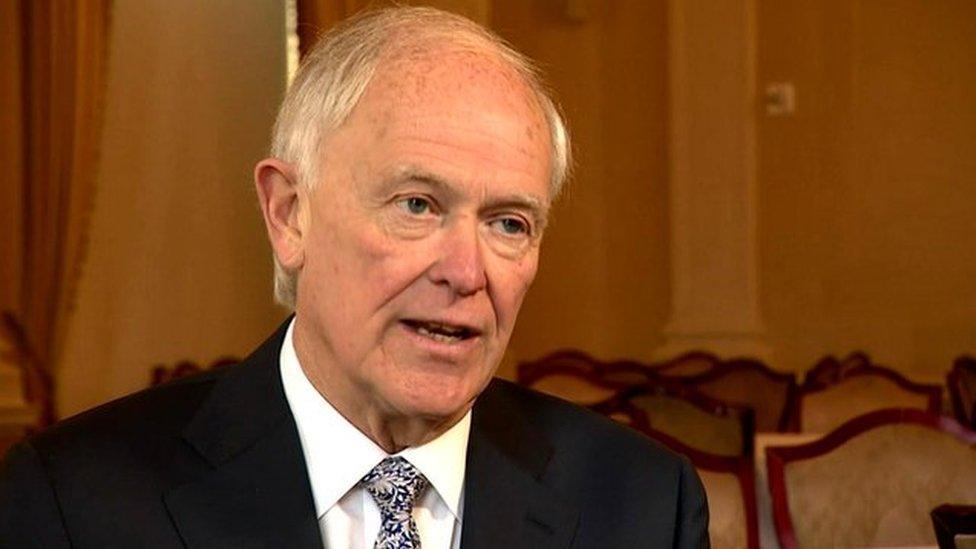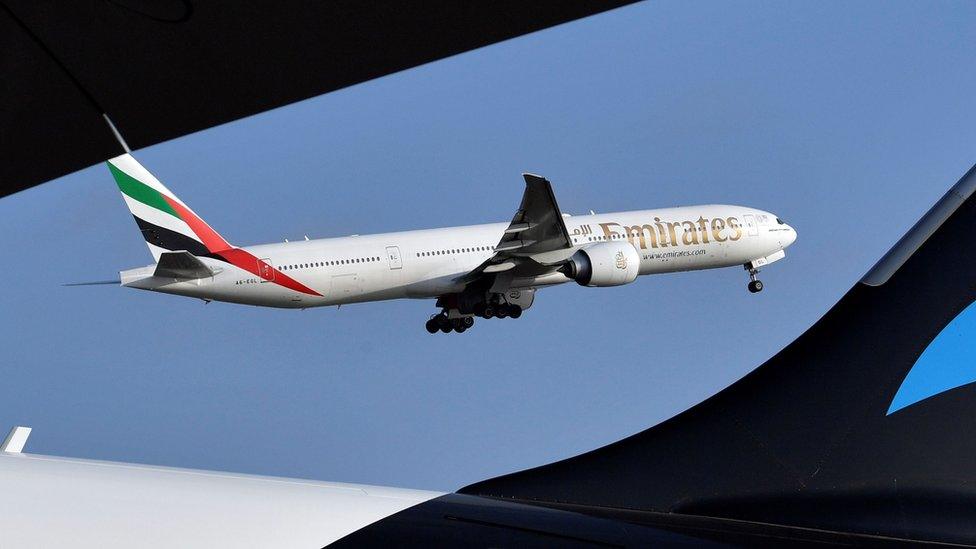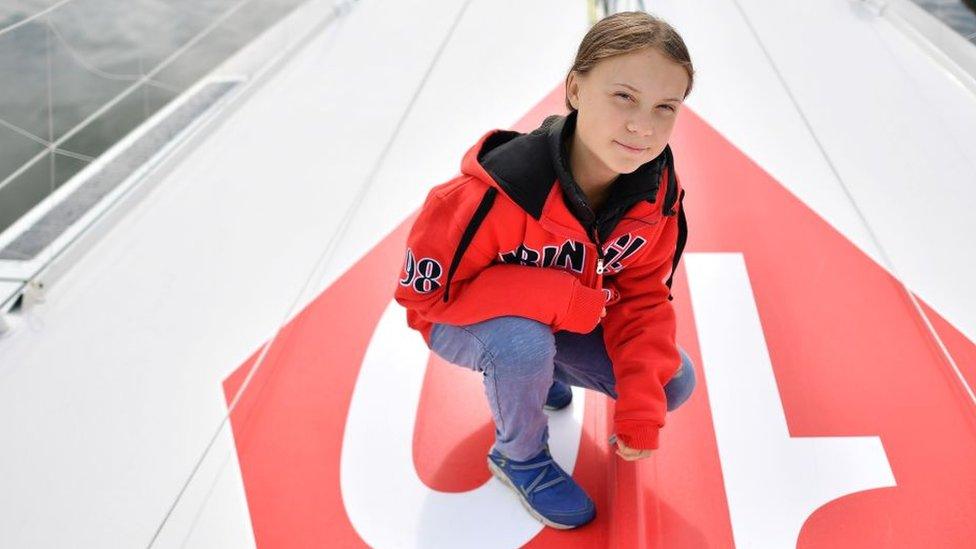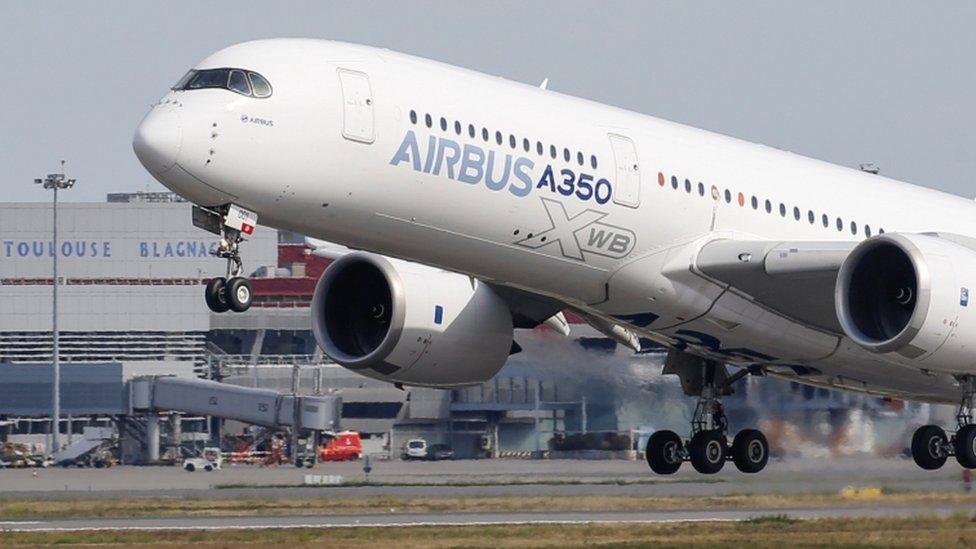Dubai Air Show: Emirates boss says he took too long to accept climate crisis
- Published

It took Sir Tim Clark a long time to face up to the climate crisis.
The president of Emirates, the biggest long-haul airline in the world, was no climate change denier. But he was pretty sceptical about some of the claims.
Not now, though. "The stark reality of climate change is with us. I'm a climate change believer. I have to say, it took me a long time to get there.
"And we [in the aviation industry] aren't doing ourselves any favours by chucking billions of tons of carbon into the air. It's got to be dealt with," he told the BBC.
It's a frank admission from one of the most powerful people in an industry that has many commercial reasons to bury its head in the sand.
Another surprise is his admiration for climate change activists. "I quite like Extinction Rebellion and Greta Thunberg for having brought a real focus to the issue; a focus on the fact that we are not doing enough at the speed we should be.
"I'm not condoning some of their methods. But Extinction Rebellion and Greta have a role to play... We really need this kind of thing to force us to make decisions."
Activists have done more to highlight the issues than any government or industry body ever has, he says.

Sir Tim, 70 later this month, has spent half his working life helping to establish and then run the Dubai-based carrier. Emirates is now one of the world's most successful airlines, carrying 150,000 people a day.
So, tackling the airline's carbon footprint is not the first challenge he's faced. But it's up there with the biggest.
Emirates, which also includes a big cargo operation, burns through an astonishing 100 million barrels of oil each year. So finding a viable alternative to fossil fuels is not going to happen any time soon, Sir Tim says.
He has little faith that electric battery alternatives will ever be capable of powering a big airliner. And while biofuels are an option, they won't be scalable to meet demand.
Sir Tim thinks synthetic fuels offer the best alternative, but these are years from being fit for purpose.
Nevertheless, meaningful change is happening, Sir Tim insists. "But the industry has been a very bad articulator of the good things we've done."

Aero-engines are far more efficient - 50% more efficient than 30 years ago, he says. Use of lighter materials in manufacturing airframes means a lighter fuel burn.
Airlines are stripping out plastic use where they can - "more difficult than you'd imagine"- and changing the way aircraft taxi on runways.
It would also help if governments improved airspace use. "Aircraft don't fly in a straight line. Even in Europe we have to make too many dog-legs," he said.
There are plenty of other small changes - what he calls "low hanging fruit" - that cumulatively could make a big dent in the industry's carbon footprint. "We are trying every trick in the book to improve things," he said.
Except, emissions are forecast to rise over the next couple of years as air travel in the Middle East and Asia continues to grow. And Emirates is expanding its fleet to meet that growth. Sir Tim spoke to the BBC at the Dubai Air Show, where the airline has announced another blockbuster $16bn order for aircraft.
He understands that most activists and "flight shamers" won't be happy until aircraft stop flying. But it's not practical and, frankly, it's just not going to happen, he said. Sir Tim also wonders if people in Europe and the US should be denying newly-affluent travellers elsewhere the same benefits the West had.
While he accepts there will be no meeting of minds with those on the other side of the table, he would like activists to at least know they have helped push through change. "We are no longer dragging our feet," he said.
- Published18 November 2019
